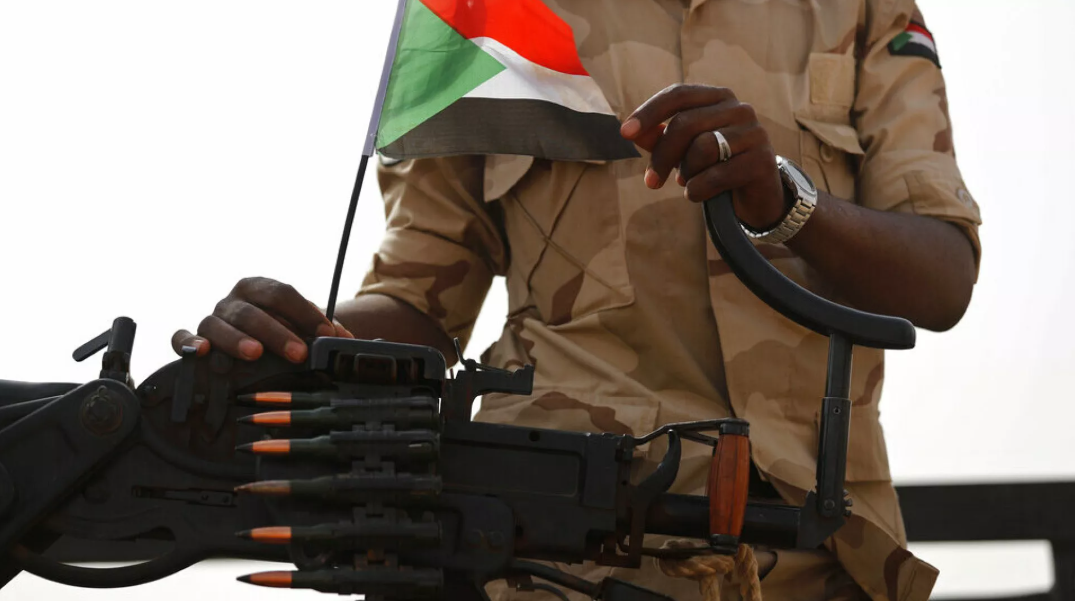
Mass Casualties in Darfur as RSF Launches Major Offensive
The conflict in Sudan’s Darfur region has intensified dramatically in recent weeks, with the Rapid Support Forces (RSF), a powerful paramilitary group, launching a major offensive in North Darfur. The RSF’s recent attacks, particularly targeting El Fasher and the surrounding areas, have resulted in significant casualties, including many civilians, in one of the worst escalations the region has seen in years.
RSF Targets El Fasher
On April 12, the RSF initiated a large-scale assault on El Fasher, the capital of North Darfur and the last major city still under the control of the Sudanese Armed Forces (SAF). The attack aimed at seizing the city, which would be a crucial strategic gain for the RSF in their ongoing battle against rival military factions.
The offensive’s toll on civilians has been devastating. The RSF launched an attack on the Zamzam refugee camp, which lies just outside El Fasher. The camp, home to thousands of displaced people who fled the violence in Darfur, was hit by artillery and gunfire, resulting in widespread destruction. According to reports from humanitarian organizations on the ground, the assault killed or injured hundreds of civilians, many of them women and children. This attack marks a tragic chapter in the ongoing conflict, as refugee camps, which are meant to provide shelter and safety, have increasingly become targets for violence.
Continued Shelling and Civilian Casualties
The violence did not subside with the assault on Zamzam camp. On April 16, intense shelling in El Fasher claimed at least 57 lives. The shelling targeted residential areas, further exacerbating the humanitarian crisis in the city. Hospitals in El Fasher, already overwhelmed by the influx of casualties from the previous attacks, are struggling to provide care to the wounded. With medical supplies running low and infrastructure deteriorating, the situation in the city has become increasingly dire.
Civilians, already vulnerable from years of conflict, are now facing an even graver danger. As fighting continues, many are trapped in the crossfire or are forced to flee their homes in search of safety. This has led to further displacement, adding to the already significant number of people displaced by the long-standing violence in Darfur.
A Deepening Humanitarian Crisis
The scale of destruction and loss of life in North Darfur has triggered widespread international condemnation. Humanitarian organizations, including the United Nations, have called for an immediate ceasefire and for all parties involved to respect international humanitarian law. However, the violence has continued unabated, and the humanitarian crisis has deepened.
Thousands of displaced people are without access to essential aid such as food, water, and medical services. The disruptions to aid efforts, combined with the ongoing fighting, have created a perfect storm of suffering for the region’s most vulnerable populations.
The Broader Context of Sudan’s Conflict
This latest escalation in Darfur comes in the wake of Sudan’s broader political instability. Since the ousting of former President Omar al-Bashir in 2019, the country has been in turmoil, with power struggles between military factions and civilian groups complicating efforts to stabilize the nation. The situation in Darfur, long a region of conflict and unrest, is a microcosm of Sudan’s larger struggles, with armed groups jockeying for power and control over the country’s future.
For the people of Darfur, the latest attacks are a grim reminder of the region’s tumultuous past. The violence of the early 2000s, when a brutal government-led campaign against insurgents in Darfur led to widespread atrocities, is still fresh in the memories of many. Despite peace agreements and international intervention, the conflict has never fully ceased, and the recent surge in violence only underscores the fragility of the peace process.
The International Response
The international community has expressed growing concern over the situation in Darfur. The United Nations, along with various human rights organizations, has called for an end to the violence and for both sides to allow humanitarian aid to reach those in need. However, with the ongoing political instability and the power vacuum in Sudan, it remains unclear how effective these calls will be.
As the RSF continues to advance in North Darfur, the prospects for peace appear increasingly distant. For the people of the region, the future remains uncertain, and the international community faces growing pressure to intervene before the situation worsens further.
In the face of mounting civilian casualties and widespread displacement, the conflict in Darfur has once again highlighted the urgency of a lasting peace agreement in Sudan. Until then, the region will likely remain a hotbed of violence and human suffering, with no clear end in sight.
Author: Global Ripple
Posted on: April 17, 2025
 Global Ripple
Global Ripple